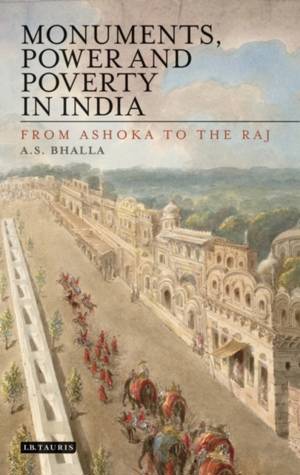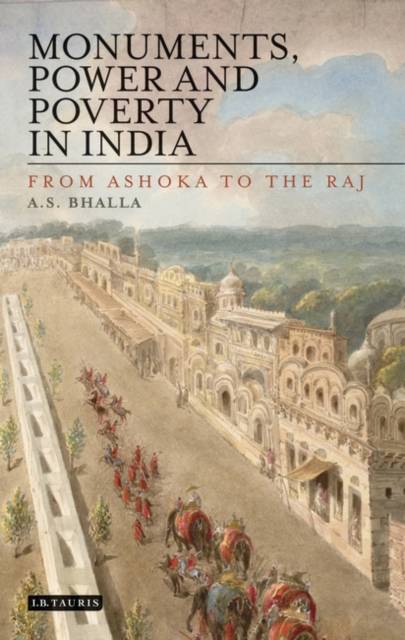
- Afhalen na 1 uur in een winkel met voorraad
- Gratis thuislevering in België vanaf € 30
- Ruim aanbod met 7 miljoen producten
- Afhalen na 1 uur in een winkel met voorraad
- Gratis thuislevering in België vanaf € 30
- Ruim aanbod met 7 miljoen producten
Omschrijving
Much has been written about the Imperial architecture of the Indian subcontinent, but this is the first book to dig deeply into the extent of imperial extravagance set against the economic and social conditions of ordinary subjects. Bhalla uses an extensive collection of illustrations to complement this apparent paradox, assessing three Indian empires - Hindu, Muslim and British. From the 3rd century BC through to the end of British colonialism, splendid and often deliberately ostentatious buildings glorified the contemporary social structures. Moving through these different periods, important symbols of the various empires are assessed, including the fort palaces of Agra, Delhi and Lahore and the Taj Mahal.
The author here examines both the positives and negatives of empire, taking in social stability but also exploitation and oppression, exploring the subject of Indian poverty in a historical perspective alongside the more lasting symbols of empire. Through comparisons and contrasts, from the mausolea and palaces of the Mughals to the government buildings and memorials provided by the British, this is a comprehensive and well-researched overview of a country whose architectural history gives important insights into the diversity of its rulers. This unique look into colonial architecture and power dynamics will prove essential readers for students, researchers and all those with an interest in South Asian history or the history of architecture.Specificaties
Betrokkenen
- Auteur(s):
- Uitgeverij:
Inhoud
- Aantal bladzijden:
- 264
- Taal:
- Engels
Eigenschappen
- Productcode (EAN):
- 9781350154698
- Verschijningsdatum:
- 19/03/2020
- Uitvoering:
- Paperback
- Formaat:
- Trade paperback (VS)
- Afmetingen:
- 140 mm x 216 mm
- Gewicht:
- 317 g

Alleen bij Standaard Boekhandel
Beoordelingen
We publiceren alleen reviews die voldoen aan de voorwaarden voor reviews. Bekijk onze voorwaarden voor reviews.











